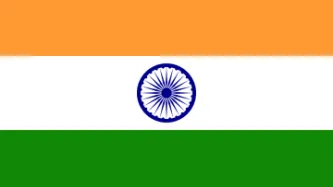Search
Content type: Examples
A 19-year-old medical student was raped and drowned in the River Dresiam in October 2016. The police identified the accused by a hair found at the scene of the crime. The data recorded by the health app on his phone helped identify his location and recorded his activities throughout the day. A portion of his activity was recorded as “climbing stairs”, which authorities were able to correlate with the time he would have dragged his victim down the river embankment, and then climbed…
Content type: Case Study
Photo by Roger H. Goun
Chloe is an investigative journalist working for an international broadcast service; we will call the TV show she works for The Inquirer. She travels around the world to work with local journalists on uncovering stories that make the headlines: from human trafficking to drug cartels and government corruption. While her documentaries are watched by many and inspire change in the countries she works in, you would not know who Chloe is if we were to tell you her real name.…
Content type: Key Resources
In the lead up to the 2017 German federal elections, there was much debate about the benefits and dangers of data analytics for political purposes. There were some controversies concerning the use of data and the lack of information provided by political parties also raised concerns.
Content type: Examples
Following Ms. Vestager’s investigation into Amazon and its own sector enquiry into online price comparison services in October 2017, in June 2018 the German Federal Cartel Office (“Bundeskartellamt”) claimed that it “received a lot of complaints” and is said to be “looking at the role and market power of Amazon” with regards to Amazon’s hybrid function. (Nicholas Hirst, MLEX, 27 June 2018, Amazon’s ‘hybrid function’ catches eye of German antitrust enforcers.) Germany is Amazon’s…
Content type: Examples
Cases of people being denied healthcare as they fail to provide an Aadhaar number have already started emerging. A 28-year old domestic worker, for instance, had to be hospitalised for a blood transfusion after she had an abortion with an unqualified local physician. She had been denied an abortion, to which she was legally entitled, from a reputable government hospital, as she did not have an Aadhaar card. Following this case, 52 public health organisations and individuals issued a statement…
Content type: Examples
While not currently mandatory to access healthcare services, Aadhaar is however increasingly used in the health sector as well. In 2018, the health ministry had to issue a statement to clarify that Aadhaar was “desirable” but not a must to access a 5 rupee insurance cover for hospitalisation under the Ayushman Bharat scheme.
https://www.hindustantimes.com/india-news/aadhaar-desirable-not-must-for-rs-5-lakh-healthcare-scheme-says-centre/story-mvQwqSKzDFYE0rhxqLFbLO.html
Author: Rhythma Kaul…
Content type: Examples
In India, one of the reasons the Aadhaar ID system has been increasingly widely used is that it is mandatory for much India’s benefits system. Government subsidies are now processed through under the Direct Benefit Transfer scheme, which requires citizens to have a bank account and to insure that their Aadhaar number is linked to their bank account so they can receive subsidies.
https://www.paisabazaar.com/aadhar-card/want-to-avail-government-subsidies-provide-aadhaar-and-get-it-easily/…
Content type: News & Analysis
The first half of 2018 saw two major privacy moments: in March, the Facebook/ Cambridge Analytica scandal broke, followed in May by the EU General Data Protection Regulation ("GDPR") taking effect. The Cambridge Analytica scandal, as it has become known, grabbed the attention and outrage of the media, the public, parliamentarians and regulators around the world - demonstrating that yes, people do care about violations of their privacy and abuse of power. This scandal has been one of…
Content type: Examples
In the lead up to the 2017 German federal election (Bundestagswahl), all political parties used social media like Facebook, Twitter, Instagram, YouTube, and e-mails as platforms to reach voters.
The far-right Alternative for Germany party (AfD) reportedly hired a Texas-based company for their campaign. Harris Media is known for their work with Republican, far-right and nationalist candidates in the US and worldwide. In 2017, Privacy International revealed that Harris Media was behind the…
Content type: Examples
In the lead up to the German elections, the conservative Christian Democratic Union (CDU) created a mobile app, Connect 17, which was designed to create a feedback loop between party headquarters and door-to-door volunteers (also known as canvassers).
The app drew on data from the federal statistics office and polling agencies. It let canvassers decide routes, record whether anyone was home, and whether a conversation had been successful. It also allowed canvassers to compare their…
Content type: Examples
The Sunday edition of the national newspaper Bild reported that Chancellor Angela Merkel's conservative Christian Democrats (CDU) party and the centre-right Free Democrats (FDP) party purchased "more than a billion" pieces of personal data about potential voters from a subsidiary of Deutsche Post, which offered target-mailing concepts to its clients. The Deutsche Post subsidiary, Deutsche Post Direkt, rejected these claims.
Instead, Deutsche Post is reported as insisting that it never…
Content type: Examples
In December 2018 reports emerged that the Indian Electoral Commission would propose amendments to the Representation of the People Act 1951 that would require citizens to link their Electoral Photo ID Card to their Aadhaar number with the stated goal of improving the accuracy of the electoral rolls. The legal change was needed because two months earlier the Indian Supreme Court had ruled that Aadhaar could only be made mandatory for welfare schemes, Permanent Account Number (PAN) cards, and…
Content type: Examples
In January 2019, Facebook announced it would extend some of the rules and transparency tools it developed for political advertising for upcoming spring elections in Nigeria, Ukraine, India, and the EU. In Nigeria, the site will bar electoral ads from advertisers outside the country where the election is being held, build a searchable library of electoral ads and retaining them for seven years, check the identity of individuals buying political ads against government-issued documents, and…
Content type: Examples
As part of the digital campaign to win re-election, in mid-2018 the BJP, which controls the Indian national government as well as that of the state of Chhattisbarh, handed out $71 million worth of free phones and subsidised data plans to 2.9 million of the state's voters and then used the phones to target prospective voters. The plan's stated purpose was to bridge the digital divide in the state, which has a population of 26 million; hundreds of cellphone towers are supposed to be added to…
Content type: State of Privacy
Table of contents
Introduction
Right to Privacy
Communication Surveillance
Data Protection
Identification Schemes
Policies and Sectoral Initiatives
Introduction
Acknowledgement
The State of Privacy in India is the result of an ongoing collaboration by Privacy International and the Centre for Internet & Society.
Key Privacy Facts
1. Constitutional privacy protections: In 2017, the Indian Supreme Court ruled that the Indian constitution guarantees a right to privacy.
2. Data…











